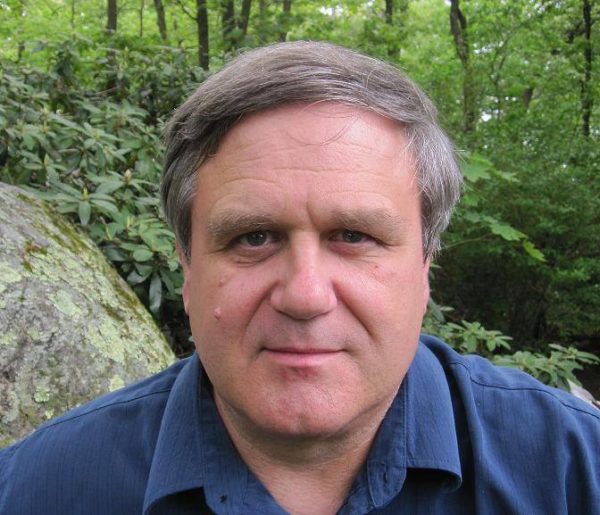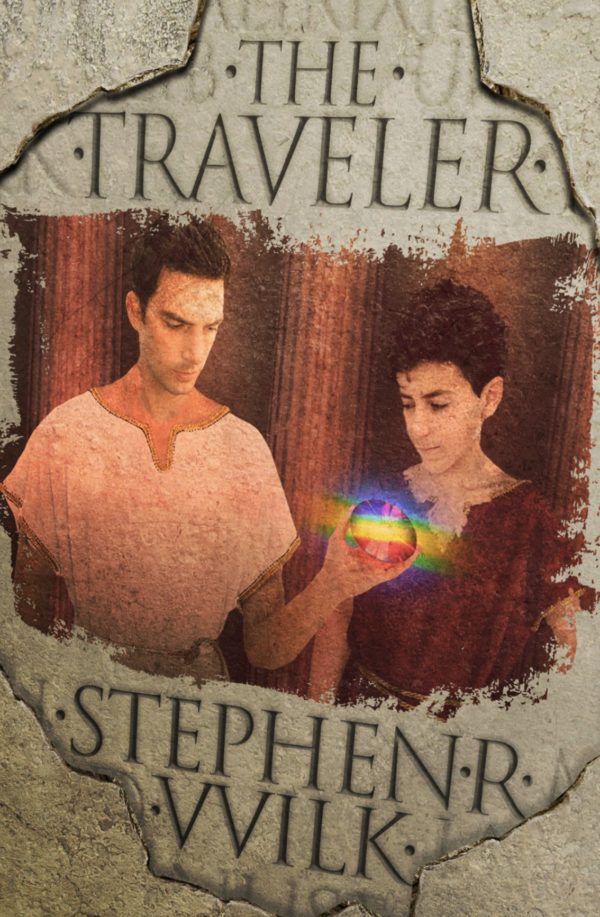Welcome to my weekly Author Spotlight. I’ve asked a bunch of my author friends to answer a set of interview questions, and to share their latest work.
Today: I’m a Scientist and Engineer who has always been interested in the Bizarre. My first published work was an article in Scientific American titled “The Physics of Karate.”
I’ve written journal articles on optics, physics, and engineering, Popular Science pieces, History, and Pop Culture. I’ve written genre fiction, including Science Fiction, Fantasy, Horror, and Mystery.
My book Medusa was the inspiration for an episode of the History Channel’s series “Clash of the Gods,” in which I appear. I’ve had three stories published in Analog, and many more published in anthologies and e-zines.
Thanks so much, Stephen, for joining me!
J. Scott Coatsworth: When did you know you wanted to write, and when did you discover that you were good at it?
Stephen R. Wilk: I wrote my first story at seven, and I’ve been at it ever since
JSC: What was your first published work? Tell me a little about it.
SRW: My first published work was nonfiction – an article in Scientific American entitled “The Physics of Karate”. It was my undergraduate physics thesis, and it described measurements and calculations I did on the required energies and forces needed to break blocks of wood or cement, and the forces and energies generated by the human body.
If you are asking about my first published fiction, aside from amateur and student magazines, my first professional sale was “Putting Down Roots” in Analog, a piece in the “bar story” tradition that concerned (appropriately) the origins of drinking alcohol and its implications.
JSC: What’s the weirdest thing you’ve ever done in the name of research?
SRW: I spent a day in the Diamond District in New York, going from place to place to try to find a professional diamond cutter. Because they handle very small and very valuable, easy-to-steal merchandise, this is a very tightly knit and suspicious community. They all know each other, and when you walk in as an unfamiliar face you are regarded with intense suspicion. But I persisted, and was shunted from place to place. I finally ended up speaking with someone on the telephone.
JSC: How long do you write each day?
SRW: It varies. If I’m really going, I’ll write for three or four hours at night (I have a day job)
JSC: Do you reward yourself for writing, or punish yourself for failing to do so? How?
SRW: While writing my first book, I passed an unusual house on my commute in to work every day. When I saw it, I’d ask myself “Are you published yet?” If the answer was “NO”, I’d ask “Why not?” It’s a silly thing, but it DID motivate me. And eventually the answer was “Yes”
JSC: Do you read your book reviews? How do you deal with bad or good ones?
SRW: I certainly do. I used to avoid reviews like the plague, but I think I’ve gotten a thicker skin as time goes by. I’m pleased by good reviews, but bad ones still annoy me, especially if I think the reviewer doesn’t properly understand.
JSC: How long on average does it take you to write a book?
SRW: One to two years.
JSC: How long have you been writing?
SRW: Almost 60 years now. Of course, my nonfiction has only been published for the past 43 years and my fiction for the past twenty.
JSC: Are you a full-time or part-time writer? How does that affect your writing?
SRW: Part time – I have a day job that supports me and my family. If I had to rely upon the income from my writing my house would still be far from paid off. I suspect having an occupation helps with writing, because my mind has something else to work on (and draw on for ideas), so that I’m not spending all my time writing.
JSC: Are you a plotter or a pantser?
SRW: Usually a plotter – I get the whole story , plot, and ending set in my mind before I start. But I did once write a mystery without doing any plotting – I didn’t know, at the start, what the crime would be, who the perpetrator would be, or how the hero would solve it. I did have definite characters in mind, and how they would interact, and the social background. It was an exercise in character and setting, and I was very happy with the way it turned out. The characters “clicked”, and I had a real mystery with a real solution at the end – which I knew nothing about when I started.
JSC: Do your books spring to life from a character first or an idea?
SRW: Usually the idea, although sometimes (as with the above) from a character.
JSC: How did you deal with rejection letters?
SRW: I keep track of them on an Excel spreadsheet, keeping statistics
JSC: Where do you like to write?
SRW: My Den
JSC: Name the book you like most among all you’ve written, and tell us why.
SRW: “Medusa: Solving the Mystery of the Gorgon” It was my first, and I wrote it because I wanted to set out my theories in a clear and readable fashion. And it accomplished that mission.
JSC: What’s your writer cave like? Photos?
SRW: It’s a very small room with bookcases, filing cabinets, and my computer desk. There are two framed Bugs Bunny animation cels on the wall, along with a ceramic Medusa Mask that I made hanging on another wall, my framed diplomas and some awards on another. I’ve got looseleaf binders of photocopied research articles, a huge Webster’s dictionary, an even bigger Oxford English Dictionary, the Chicago Manual of Style, Strunk and White’s Elements of Style, and a half dozen books on writing. Also several gargoyles, an oversized T. Rex, a model “dokana”, and a replica of the Aztec Calendar Stone I bought at the Hayden Planetarium as a kid.
JSC: What book is currently on your bedside table?
SRW: “The Re-Enactor’s Cookbook” by M. Allyson Szabo, which I bought recently at a Reaissance Fair. From M. Allyson Szabo, who autographed it.
JSC: How did you choose the topic for The Traveler?
SRW: It was a situation I’ve often considered – what would you do if your Time Machine broke down while you were in the past, and you had to fix it to get back home? I took inspiration from Mark Twain and L. Sprague de Camp
JSC: Tell us something we don’t know about your heroes. What makes them tick?
SRW: A desire to get back home, but also to rescue those around him from their troubles. And a desire to teach.
JSC: What were your goals and intentions in this book, and how well do you feel you achieved them?
SRW: I wanted to present the problem and the way the hero goes about solving it, as seen through the eyes of a “local”. I also wanted to show his thought processes in a way other than internal narration.
JSC: What was the hardest part of writing this book?
SRW: Researching the limitations of Roman technology.
JSC: Who did your cover, and what was the design process like?
SRW: I wanted to have an artist friend do a cover, since he is very talented, I’ve known him a long time, and he has a professed goal of making the cover appropriate for the book. But he was too expensive, and I didn’t want to rely on familiarity to entice him to do it cut-rate. I found another artist through a message board I frequent, and he came up with a cover that fit my suggestions, and it came out very well.
JSC: Tell us one thing about them that we don’t learn from the book, the secret in their past.
SRW: His brother died of a drug overdose, which leads him to take a brotherly interest in the POV character, and to try to rescue him from living on the street.
JSC: As a child, what did you want to be when you grew up?
SRW: A paleontologist, at first. Then a scientist. I finally did become a scientist and engineer
JSC: Were you a voracious reader as a child?
SRW: Yes. And still am
JSC: What pets are currently on your keyboard, and what are their names?
SRW: Our two cats, Hermes and Hestia. (Our daughter named them. Like me, she’s interested in Greek Mythology)
JSC: We know what you like to write, but what do you like to read in your free time, and why?
SRW: A great range of things – Science Fiction, Fantasy, Mysteries, Horror, History, Historical Fiction, Humor, Science and Technology, Math, Biography, Geography and TRavel
JSC: What qualities do you and your characters share? How much are you like them, or how different are they from you?
SRW: Persistent, Inquisitive, and Driven. And witty.
JSC: Star Trek or Star Wars? Why?
SRW: Star Trek, because, especially with TOS, it’s real science fiction. Star Wars is Science Fantasy, with the trappings of science fiction, but with mysticism at its core.
JSC: What’s your drink of choice?
SRW: Pinot Grigio. Or Pepsi, depending on the place and my mood.
JSC: Would you rather be in a room full of snakes or a room full of spiders?
SRW: Snakes. I’ve kept snakes as pets, but not spiders.
JSC: What are you working on now, and what’s coming out next? Tell us about it!
SRW: “Mystery Ship: The Long and Strange Odyssey of Submarine S-49” The story of the strangest submarine I’ve ever encountered. It had three distinct “lives”, and involves some very interesting characters. A nonfiction book. You can find information about her on the internet, but be warned – almost every website about her is filled with errors. Even Wikipedia.
And now for Stephen’s new book: The Traveler:
Argus survived on the streets of Rome using his skill and his wits, but he had never seen anything like the Crazy Man, Tenobius. Tenobius looked odd, and couldn’t speak Latin properly, but he had magical things and metal teeth. All Tenobius wanted to do was to repair his Dreamship (with Argus’ help) and go home. What Argus could not know was that Tenobius was a Time Traveler, and his Dreamship was his crashed Time Machine. To get home, he had to rebuild it using only what he could find and make in ancient Rome.


